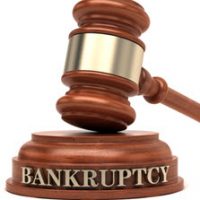Senior Citizens and Bankruptcy—Should You File?

As bankruptcy lawyers in Southern Florida, we meet our fair share of senior citizens who are struggling with debt. Sometimes the debt is medical debt or credit card debt, with credit cards often used to pay for medical expenses. Regardless of how they accumulated debt, these clients want to know whether they should file for bankruptcy. Like everyone else, senior citizens should carefully consider how a bankruptcy will affect their debts and assets.
Analyze Your Debts
Bankruptcy is an effective option for eliminating unsecured debt. Debts are unsecured when they are not backed up by collateral. Generally, credit card debt, personal loans, and medical debt will be unsecured and good targets for bankruptcy. However, secured loans—like home mortgages or car loans—are not.
According to a recent study by AARP, senior citizens have credit card debt from:
- Home upgrades
- Car repairs
- Medical care
- Gifts to family members in the form of cash advances
- Daily living expenses
Most of these debts are eligible for discharge in bankruptcy, but you should look closely at cash advances. If you take a cash advance of $925 or more in the 70 days before filing for bankruptcy, then it will be presumed fraudulent. You might not be able to discharge these amounts.
Look Closely at Your Assets
Consumers typically file either a Chapter 7 or Chapter 13 bankruptcy. For getting rid of debt fast, Chapter 7 is ideal. From start to finish, you can complete the process in a few months and soon be sleeping soundly at night. A Chapter 7 bankruptcy will wipe out most unsecured debts, leaving you free to spend your money on your retirement.
However, Chapter 7 has a large downside. The trustee who oversees your bankruptcy can liquidate certain assets and use the proceeds to pay off your creditors. Whatever debts remain after liquidation will be discharged.
Many seniors and older Floridians are worried about losing their homes and their retirement accounts. Fortunately, retirement accounts like 401Ks are exempt, meaning the trustee cannot sell them to pay your creditors. Other retirement accounts, like IRAs, are exempt up to a certain dollar amount.
The situation is a little more complicated with your home. Florida’s constitution provides for a homestead exemption that protects it from creditors. However, you’ll need to meet certain requirements:
- First, you must actually reside in Florida and in the home you want to exempt. It can’t be a winter vacation home, a second home, or an investment property.
- Second, you can only exempt up to $145,000 if you are single or $290,000 if you are married unless you have lived in the home for 40 consecutive months. After that point, you can exempt an unlimited amount of value in your home.
See Through Bankruptcy Myths
Many of our senior clients admit to being embarrassed that they are considering bankruptcy. They feel like they are cheating because they were raised to always pay their debts. That is certainly a good general rule. But it is also true that a fair health care system wouldn’t saddle senior citizens with tens of thousands of dollars of debt. And a caring federal government wouldn’t pay out Social Security benefits that barely keep up with inflation.
In truth, the bankruptcy system exists for a reason, and every credit card company sent you a card knowing you might default. Bankruptcy affords people peace of mind when debts have spiraled out of control. Why shouldn’t you take advantage of it?
Consider Your Options with a Florida Bankruptcy Attorney
Bankruptcy is a great option for some seniors—but not all. To help you understand your options, Nowack & Olson provides potential clients with a free consultation. Contact us today in Plantation for help.
Resource:
aarp.org/content/dam/aarp/research/public_policy_institute/security/2013/older-americans-and-credit-card-debt-AARP-ppi-sec.pdf
